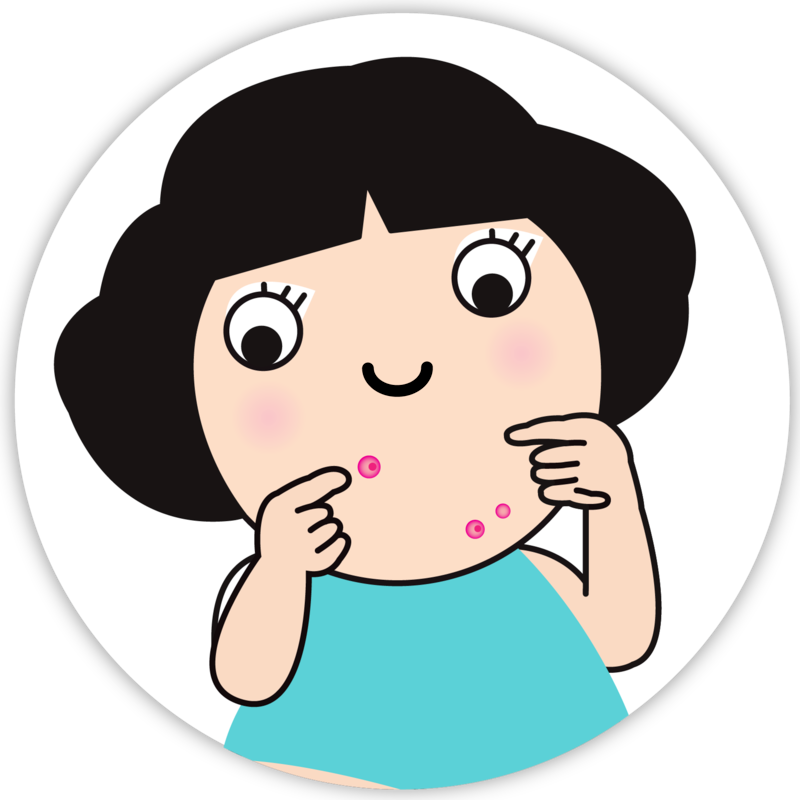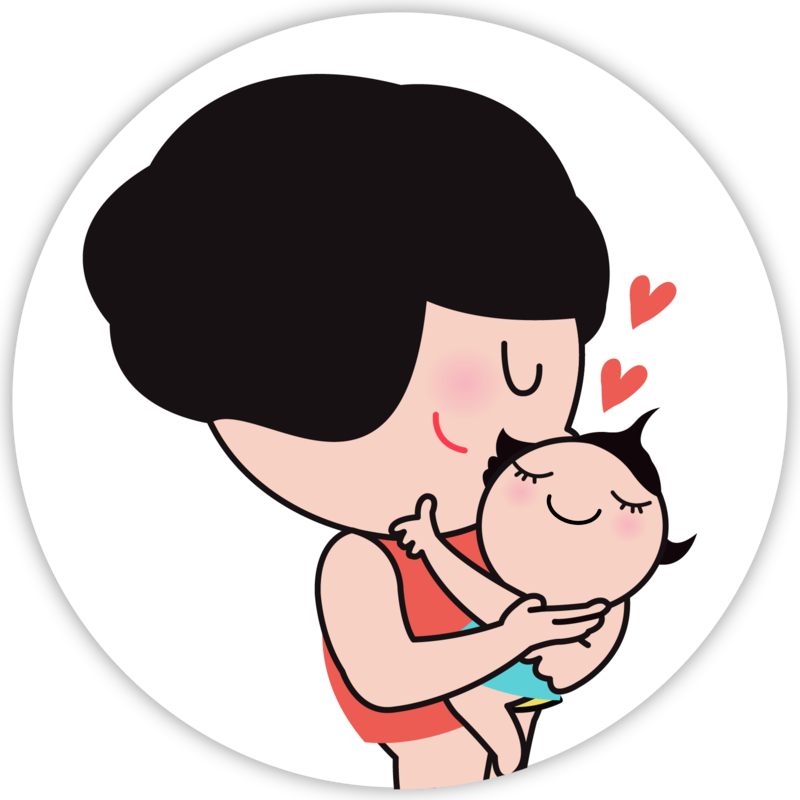I understand sensitive brains and nervous systems
...intimately.
I understand from 3 different parts of my life.
Each of them brings a valuable piece to the puzzle of how to find lasting freedom from repetitive behaviors.

1) I Understand What It's Like to Live With These Behaviors

When it comes to body-focused repetitive behaviors, I’m a reluctant hat-trick. I started pulling my hair when I was 9 years old in Mrs. Bennett’s 4th grade class. I started biting my nails, the skin around them, and the inside of my cheeks a bit later when I was about 12. I actually can’t remember when I started picking my skin. It runs in my extended family and I honestly didn’t know it was a problem until I went to kindergarten and realized that everyone didn’t pick their skin and didn't let their scabs heal! I was a very sensitive kid and I desperately hid both my behaviors and my sensitivity behind an impressive veil of perfectionism.
I struggled with my repetitive behaviors, with very little progress, from when I was very young until age 33. Since then, I've experienced dramatic improvements in both my urges and my ability to work with them. There’s lots I could tell you about what it’s like living with a sensitive nervous system, but I know the big question most people want to ask is:

How did you regrow your hair, heal your skin, and revive your nails?

The answer in short is…
I listened.
I listened to what my body was desperately trying to tell me. I eliminated the things in my life that were irritating my brain and nervous system, found things to nourish me, and learned how to better support myself when I was stressed or bored. And then most importantly, I built a daily practice around these things to create a framework of support so I didn’t have to worry about forgetting to do the things that help me the most.
But I didn't do it alone. I had some very special people who helped me find more freedom. And this wisdom came from a very surprising place! I learned my biggest insights from working with kids with Autism.
And This Brings Me to Hat #2 ... Understanding These Behaviors As a Practitioner
I'm a teacher down to my bones. I’ve spent my career studying the brain and nervous system, specifically highly sensitive ones. Over the last 18 years I’ve worked with over 2,400 patients with highly sensitive nervous systems including individuals challenged with Autism, ADHD, anxiety, auto-immune disorders, body-focused repetitive behaviors, OCD, and addiction. I'm no longer in private practice, opting instead to teach people about how they can become their own best doctors.
My area of expertise is natural medicine. I earned my Natural Science degree from the College of Saint Benedict and went on to receive my Doctor of Chiropractic degree from Northwestern Health Sciences University. Because of the challenging and genetic nature of the diagnoses that many of my patients have presented with, I've had to look beyond conventional natural therapies to get to the root of what's behind these difficult conditions.

As a result, my post-doctorate focus has been in the field of epigenetics.
Epigenetics, in a nutshell, is the study of how you can influence the expression of your genes. Your genes are simply a blueprint, and your lifestyle choices have a huge impact on what you build from that blueprint. Depending on your toxic load, your nutrition, and your response to stress, genes that code for illness and disease can be switched on or they can stay silent. In other words, you have a lot of control over your genetic light switches! You'll learn a whole lot more about simple and effective lifestyle choices you can make in your 12-week Beyond BFRB course.

Some of life's greatest insights happen in the most unexpected of places.
It’s been through my work with children on the Autism Spectrum that I’ve learned the most about how to find freedom from these behaviors. Many children with Autism Spectrum Disorder do repetitive stimming behaviors like hand flapping, rocking, spinning, or repetitive phrases to regulate their nervous and sensory systems.
But unlike many of us with body-focused repetitive behaviors, who try desperately to hide them, children with Autism do these behaviors anytime and anywhere they are feeling over or under-stimulated. Because their behaviors are so much easier to observe, I quickly learned through listening to parents and observing the kids what made their behaviors worse and what really helped. I learned:
-
How common chemicals in personal care and cleaning products cause irritation and increase urges,
-
Which herbs balance the brain and nervous system and bring soothing to sensitive systems,
-
How digestion is an integral component of these repetitive behaviors,
-
How to deal with hormonal fluctuations and the increase in behaviors which is a result,
-
Which stress-reduction and resiliency exercises actually make a difference, and
-
The importance of a daily structure to maintain results.
3) I Understand What It's Like to Parent Someone Through These Behaviors
My third perspective is that of a parent who has a child with body-focused repetitive behaviors. My youngest daughter is highly sensitive like me and has struggled with body-focused repetitive behaviors.
You'd think that having lived with these behaviors myself and intimately knowing what it's like to be highly sensitive, I would have had this parenting thing all figured out. Nope! My daughter has no problem reminding me that lots of the things that I think I'm doing to support her drive her absolutely crazy! She's also helped me tremendously in making sure my approach is simple and practical enough for a teenager's schedule.
I've learned so much from listening to parents over the years and noticing what does and doesn't work in providing support for individuals with these behaviors.

And No...
We don't spend all our days smiling at each other making lemonade in the kitchen. There's at least a little sass every day when my daughter reminds me that something I've done or said has NOT been appreciated. :) Loving someone through these behaviors is challenging, It's hard to know what to say .... what not to say ... how you can be helpful. If you're loving someone through these behaviors, I've made a free program especially for you.
Okay...enough about me. Now I want to get to know you.
Choose the Awareness Course below that is specific for your behavior or needs. If you have multiple repetitive behaviors, I suggest you start with the one that's bothering you the most right now.

For pullers.
1-2 people out of every 100 silently struggle with repetitive hair pulling. If you pull from your scalp, eyelashes, eyebrows, pubic area, or legs you're not alone.

For pickers.
Repetitive skin picking is very common and is estimated to affect between 1.4-5.4% of the population. This makes it more common than peanut allergies!

For biters.
Biting may be the most familiar repetitive behavior. For some it can become chronic. If you bite your nails, cuticles, skin, lips, or cheeks, we've got you covered!

For families.
Feeling confused and helpless about how to help your loved one? Join the club! Take our free course to learn how you can be more skillful in your support.
